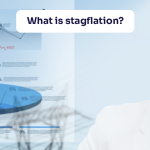Investing in the stock market has always been tricky since market sentiment remains as dynamic as it can be most of the time. This is due to factors such as global economic conditions, policy shifts, natural events, etc. Consequently, fluctuating stock prices have a ripple effect on investors’ overall attitude and mood.
Recently, Hindenburg's allegations on the SEBI chief holding funds in off shore accounts have come into the spotlight. They have also caused the SEBI chief, Madhabi Puri Buch, for manipulating the Adani shares prices. Hindenburg Research’s revelations put an interesting case before the world that rocked the stock markets around the globe. The Adani vs Hindenburg case is more than just a headline as it is getting bigger and bigger with the recent updates.
It's a significant event that may shape the future of investing in India thereby setting the table for widespread debates. As it continues to draw scrutiny from regulators and raise concerns among investors globally, let’s understand how it will impact investing in the stock market.
In January 2023, Hindenburg Research published a report alleging the Adani Group of fraud via conglomerate and stock manipulation. The Adani Group has been involved in similar allegations before, indicating multiple off-the-chart activities to manipulate market sentiments. The report was first made public in January 2023, which was sometime before the biggest Follow-on Public Offering (FPO) in India. Adani Enterprises was all set with this venture, but unfortunately, this report turned the tables. Nevertheless, the stock prices did not fluctuate much over the course, until another update was made to this report.
On August 10th, 2024, Hindenburg outlined a link between SEBI’s chief, Madhabi Puri Buch, and dodgy investments manipulating Adani Group-linked share price. This sparked a row, thereby compromising the integrity of the Securities and Exchange Board of India (SEBI).
The Adani vs Hindenburg research continues to initiate debates, but you must know what actually prompted the report. Going back to the timeline between 2010 and 2019, there was no connection between Madhabi Puri Buch, the current SEBI chief and the Adani group. However, an investment she made along with her husband established the link via association.
From 2010 to 2019, she was in Singapore with her husband, Daval. During that period, they invested in funds as NRIs, which are further alleged to have links with the Adani Group. This Hindenburg Adani case has taken a toll on SEBI’s integrity. However, Buch’s response nullifies all such allegations. This series of events has also raised the question of whether the previous dodgy investor's investigation was compromised in any way.
The Adani vs Hindenburg case has undoubtedly left investors grappling with a mix of uncertainty and caution. The initial response to the Hindenburg report was one of disbelief, especially given the scale of the allegations against a conglomerate as influential as the Adani Group. For many investors, particularly those heavily invested in Adani stocks, the report has triggered a re-evaluation of their portfolios. Here’s a quick investor’s outlook on this case:
Understanding the intricate dynamics between stock market sentiment and global economic factors is crucial for any investor. The Adani vs Hindenburg case serves as a focal example, showcasing the potential impact of corporate governance issues on market stability and investor confidence. As the investigation unfolds, it underscores the importance of due diligence, transparency, and regulatory oversight in safeguarding market integrity and fostering sustainable investment environments.

Midcaps: Sweet Spot or Danger Zone? | What HSBC MF’s Cheenu Gupta Thinks | Ventura Spotlight
4 min Read Dec 17, 2025
Understanding Option Pin risk near expiry
4 min Read Dec 12, 2025
EPS in the Stock Market
4 min Read Dec 12, 2025
What is stagflation?
4 min Read Dec 10, 2025
Did Andhra Pradesh Just Trigger India’s Next Spirits Boom?
4 min Read Dec 10, 2025